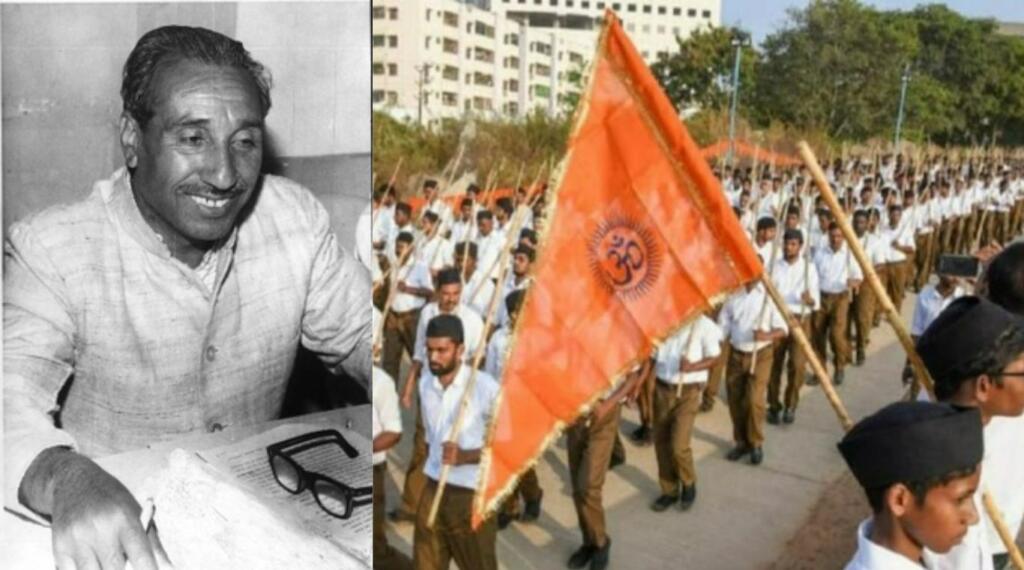Late night on 22 October 1947, when Kashmir was fast asleep, a series of lorries from Pakistan started moving towards Muzaffarabad. Pakistani soldiers were present in these lorries along with armed tribesmen. Pakistan had attacked Kashmir and the Muslim soldiers of Maharaja Harisingh’s army had betrayed him and joined their Pakistani Muslim brothers. The Hindu commanders of the state’s army had been killed, while the Indian army was still in Delhi and there was no one to stop the tribesmen in Kashmir. The future of Kashmir seemed to be full of darkness, but even in the atmosphere of fear and brutality, the workers of the Rashtriya Swayamsevak Sangh stood firm on their ground, without being concerned for their own lives. Today, if Kashmir is an integral and indivisible part of India, then the role of those workers of the Sangh can never be forgotten.
The attack by the Pakistani side had a well-thought-out plan. They carefully planned their attack in October as snowfall usually starts in the Kashmir valley in this very month. Unlike today, there was no tunnel in Banihal to connect Jammu and Kashmir and this route could be accessed only through the Banihal pass, & it remained closed due to snowfall. This means that the only way to connect India with Kashmir and Srinagar was by air. But heavy snow had accumulated on the only airstrip of Srinagar and the Indian Air Force couldn’t land or take off planes from there.
On the other hand, the Pakistani army was advancing at a brisk pace, so Kashmir needed military help at the earliest. India needed to keep the Srinagar airstrip under its control at any cost so that Kashmir would not lose contact with the rest of India.
In a situation like that, Delhi was asked to deploy all the workers present in Srinagar for snow removal, but Srinagar had been vacated and no worker was ready to take up the task.
In a situation of uncertainty, the Indian Army finally asked for help from the RSS. The Sangh has been active in Jammu and Kashmir since 1940 and the credit for RSS’s active participation goes to Prof. Balraj Madhok, under whose guidance the Sangh started working in this border state. Balraj Madhok was a resident of Skardu (Baltistan) and he completed his early education in Lahore and Srinagar.
When the army demanded 150 volunteers so that all the snow could be removed before morning, the Sangh sent 500 volunteers in just half an hour… Amidst the intense cold, the volunteers started by 1.30 in the night to remove the snow & the entire runway was cleared in just a few hours.
Finally, on 27 October, 329 soldiers of the Sikh Regiment landed in Srinagar by plane and took control of the airfield. After this, 8 such planes landed there one by one. All those planes had soldiers and military equipment. The volunteers of the Sangh also helped the army in loading and unloading the equipment. Soon after, the volunteers helped the army in expanding the runway to allow for the movement of large planes. We all know what occurred next. The valor and courage of the Indian Army left the tribals and disguised Pakistani soldiers in a state of panic & fear, saving Kashmir from their clutches.
It has been 77 years since the first attack of Pakistan on Kashmir, the fact that Jammu Kashmir is an integral part of India underscores the need to remember those hardworking volunteers of the Sangh who rose to the occasion. It also highlights the patriotic working style of the Sangh, who not only helped the Indian Army but also sacrificed their lives to free Kashmir from the occupation of Pakistan.
